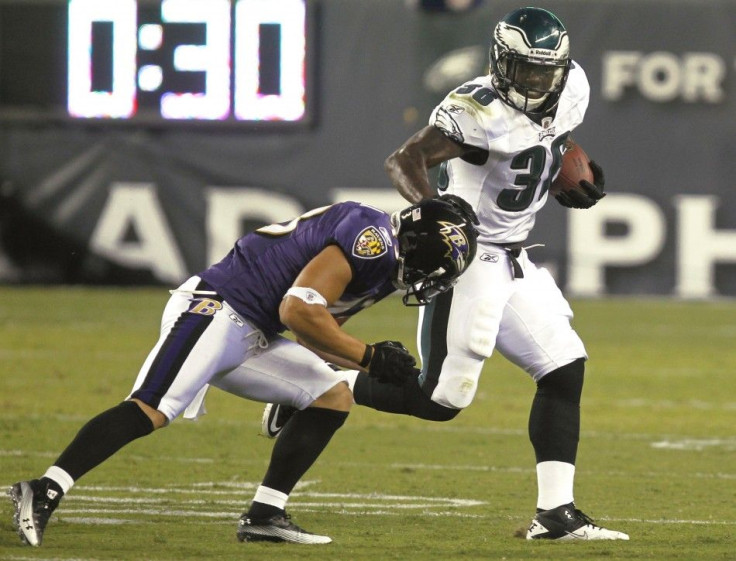The Detroit Lions Getting Ronnie Brown Makes Them Even More Feared

The Detroit Lions did what they had to do to fill their need at running back with the 4 p.m. trade deadline approaching quickly. The Lions acquired Ronnie Brown from the Philadelphia Eagles in exchange for running back Jerome Harrison and an undisclosed 2013 draft pick.
The Lions have struggled with the run all year, ranking 25th in the league. Jahvid Best, their best back, left Sunday's game against the San Francisco 49ers with a concussion injury, his second one in a three month period. Best struggled on the field all day, rushing for just 37 yards before suffering the injury in the fourth quarter. The second-year pro had concussion issues during his junior year of college as well.
There's been no word yet on Best's availability for next week's game against the Atlanta Falcons, but with a concussion injury, you never know. That's exactly what the Lions thought and that's why they went out and got a veteran in Brown.
The Lions received a logical pickup in Brown, who played for current Lions offensive coordinator Scott Linehan during his rookie season for the Miami Dolphins in 2005. He could potentially receive more touches thanks to the unknown availability of Best, too. Brown has basically been warming the Eagles' bench this season, with only 38 yards on 13 carries in six games.
Brown's resume also gives some assurance to the Lions that he will provide versatility and be productive. He was a Pro Bowl alternate after rushing for 916 yards and 10 touchdowns for the Dolphins in 2008. He has also always been an above-average receiver, accumulating almost 1,500 yards in his six-year career.
Taking into consideration the Lions' weak running attack, receiving has been a critical attribute in the team's passing offense, and at 230 pounds, Brown is a much better power option than starter Best, who is only 200 pounds. Also, the Lions now have the option to start using some of the Wildcat offense, which Brown was the key component of in the original scheme the Dolphins introduced in 2008.
The biggest question this trade raises is one even the Lions might not be ready to answer though: Did the Lions acquire Brown simply for depth at a relatively thin position? Or are they concerned about the long-term status of Best, who is dealing with his second concussion in three months?
As far as the Eagles picking up Jerome Harrison goes, the team has traded for him for the second consecutive season. Last year, Harrison was shipped from the Cleveland Browns in exchange for running back Mike Bell, and rushed for 239 yards on 40 carries in eight games with the Eagles.
Harrison was a free agent following the 2010 season and wound up in Detroit, where he rushed for 41 yards on 14 carries in three games played. When Harrison was originally set to be a restricted free agent, the Eagles showed their opinion of the running back by placing a second-round tender on him. Now, he joins the likes of the Eagles' number one rushing attack in the NFL, led by breakout star LeSean McCoy and Dion Lewis.
The Eagles can no longer run as much Wildcat offense without Brown, but they will still be a formidable running team with depth and backfield threat.
The Lions, on the other hand, can try some new things with Brown and can become more dangerous in the receiving game, making them a more legitimate contender for the playoffs.
© Copyright IBTimes 2024. All rights reserved.











